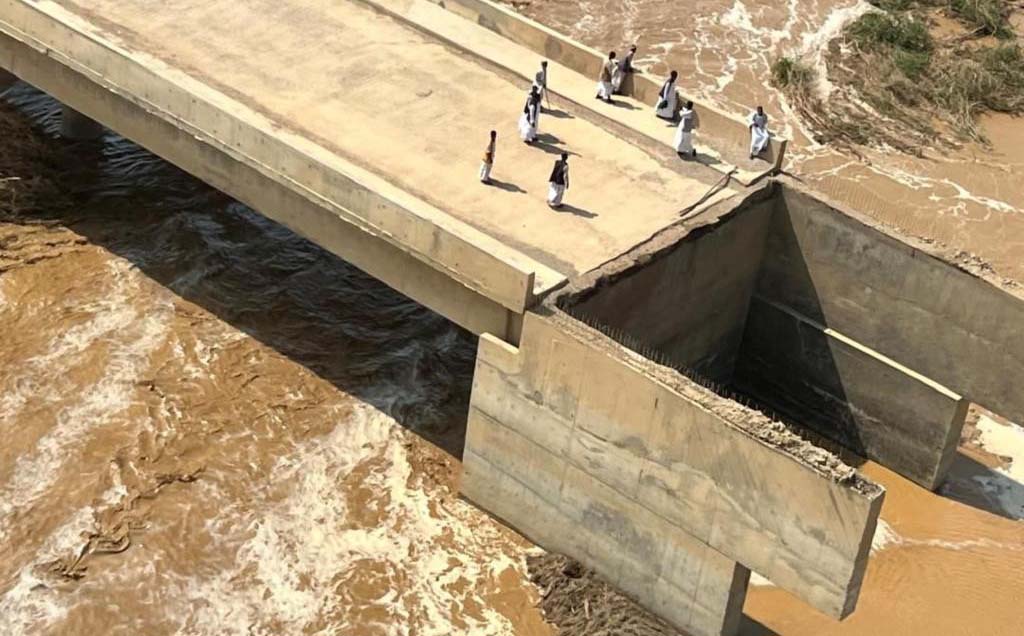Sudan flooding: Death toll rises amid rescue efforts

Dolabyay Bridge damaged by floods coming from Khor Baraka in Toker (Photo: Sudan’s Transitional Sovereignty Council)
In Toker, Red Sea state, the death toll from the catastrophic flooding has risen to 14 after the bodies of a man and a girl were discovered yesterday. This discovery comes as water levels in the city have begun to recede, four days after the floods initially struck.
Eyewitnesses reported that an entire family was found under the rubble of their home, but rescue teams have been unable to retrieve the bodies. The situation remains dire, with residents facing immense challenges.
The International Organisation for Migration confirmed that the Khor Baraka flood, which hit Toker on Sunday, displaced around 500 people. The only cemetery in Toker was submerged, forcing residents to bury victims near a local school. Health facilities remain inaccessible, further compounding the crisis.
A brief reprieve came as water levels dropped significantly on Monday, thanks to volunteers opening sewers to drain the floodwaters. Some shops, bakeries, and cafes have since reopened.
During a visit of Sovereignty Council leader and commander-in-chief of the Sudanese Armed Forces Lt Gen Abdelfattah El Burhan and the Red Sea state governor to Toker locality on Monday, residents urged them to repair the extensive damage and expedite road repairs between Toker and Port Sudan. They also called for urgent food and medical aid.
As the community rallies to repair the roads in Toker, concerns mount over the forecast of new rains and potential floods.
The Meteorological Authority warned that thunderstorms moving from western Saudi Arabia toward Red Sea state could bring heavy rains and strong winds, potentially triggering further flooding in Port Sudan and Toker.
Arbaat Dam
The collapse of the Arbaat Dam in Red Sea State on Sunday has claimed at least 30 lives and affected 50,000 people, according to the UN Office for the Coordination of Humanitarian Affairs (OCHA) in Sudan.
The collapse of the Arbaat Dam has affected about 70 villages, with 20 completely destroyed. Floodwaters have wiped out crops, damaged schools, and killed a significant number of livestock.
Authorities are investigating the causes of the dam’s collapse, with some attributing it to the impact of heavy rains and others pointing to a lack of maintenance and the effects of nearby gold exploration.
The dam’s collapse has sparked fears of a looming water crisis in Port Sudan, a city heavily reliant on the dam’s water supply. Port Sudan, which has become the administrative capital following the outbreak of war, is now grappling with severe water shortages. The city’s fourth reservoir, its main water source, has been devastated, leaving thousands without access to clean water.








 and then
and then